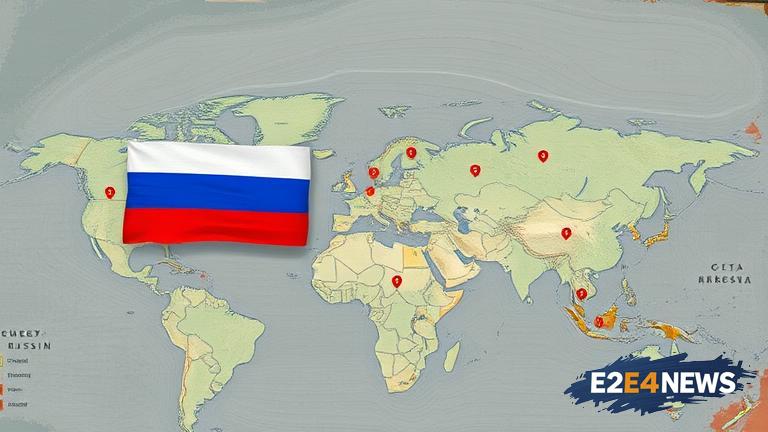The BBC has recently expressed concerns about the increasing influence of RT, a Russian state-funded media outlet, on a global scale. RT, formerly known as Russia Today, has been expanding its reach and audience in recent years, with a significant presence in social media and online platforms. The BBC’s warning comes as RT’s global influence continues to grow, with many experts citing its potential to shape public opinion and sway political discourse. RT’s coverage of international events, such as the Ukraine conflict and the Syrian civil war, has been particularly noteworthy, with some critics accusing the outlet of promoting a pro-Russian agenda. Despite these concerns, RT has maintained a significant following worldwide, with many viewers drawn to its alternative perspective on global events. The outlet’s influence extends beyond traditional media, with a strong presence on social media platforms such as YouTube, Facebook, and Twitter. RT’s online presence has allowed it to reach a wider audience, including younger viewers who may be more susceptible to its messaging. The BBC’s warning about RT’s influence has sparked a wider debate about the role of state-funded media outlets in shaping global public opinion. Some experts argue that RT’s influence is a natural response to the dominance of Western media outlets, while others see it as a threat to democratic values and free speech. The Russian government has consistently denied allegations that RT is a propaganda tool, instead framing it as a legitimate news outlet that provides an alternative perspective on global events. However, many critics point to RT’s close ties to the Kremlin and its history of promoting pro-Russian narratives as evidence of its biased reporting. The impact of RT’s influence can be seen in various parts of the world, including Europe, the Middle East, and Latin America. In some cases, RT’s coverage has been credited with shaping public opinion and influencing political decisions. The outlet’s influence has also been linked to the spread of disinformation and conspiracy theories, which can have serious consequences for global stability and security. Despite these concerns, RT remains a popular source of news and information for many people around the world. The outlet’s ability to tap into anti-establishment sentiment and provide an alternative perspective on global events has resonated with many viewers. However, the BBC’s warning about RT’s influence serves as a reminder of the importance of media literacy and critical thinking in today’s digital age. As the global media landscape continues to evolve, it is essential to be aware of the potential biases and influences that shape our understanding of the world. The debate surrounding RT’s influence is likely to continue, with many experts calling for greater transparency and accountability in the media industry. Ultimately, the impact of RT’s influence will depend on the ability of audiences to critically evaluate the information they consume and to seek out diverse perspectives on global events. The Russian government’s support for RT has been consistent, with the outlet receiving significant funding and resources to expand its reach and influence. The outlet’s global influence has also been linked to the Kremlin’s broader strategy of promoting Russian interests and shaping global public opinion. As the world becomes increasingly interconnected, the influence of state-funded media outlets like RT is likely to continue to grow, posing significant challenges for democratic values and free speech. The BBC’s warning about RT’s influence serves as a reminder of the importance of promoting media literacy and critical thinking in today’s digital age.
